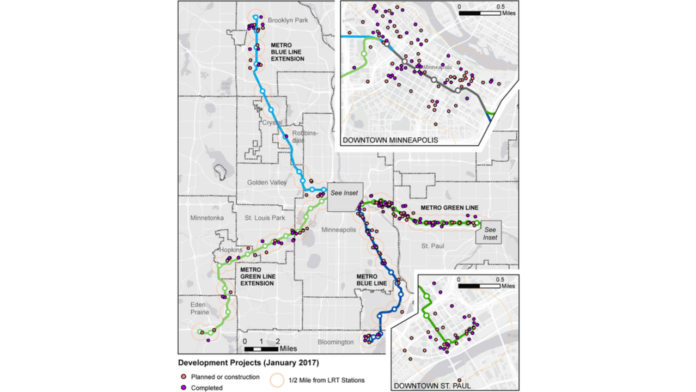MINNEAPOLIS – The Metropolitan Council’s Southwest Light Rail Transit (SWLRT) project continues to face funding challenges.
Following months of contention, the Counties Transit Improvement Board (CTIB) has reached an agreement to dissolve itself. The CTIB included five metro area counties–Anoka, Dakota, Hennepin, Ramsey and Washington–which worked together to raise transportation funds through a quarter-cent sales tax. Now, following the dissolution, counties are allowed to raise the local sales tax to a half-cent in order to fund transportation projects.
Despite the ability to raise taxes, the dissolution still leaves some counties hurting more than others. While Hennepin County would be able to raise local sales taxes by a half-cent, they are now required to foot the bill for SWLRT. This could mean having to spend an extra $103.5 million on the extension, bringing the county’s total to $289 million.
CTIB Chairman Peter McLaughlin, who is also a Hennepin County commissioner, told the Star Tribune that Hennepin county will likely borrow money to cover the gap in coverage for SWLRT left by the dissolution of the CTIB. Increased tax revenue will also help fund various transportation projects around the county.
As the battle for local funding continues, the Met Council also still has to secure over $900 million in funds from the Federal Transit Administration (FTA). As Alpha news previously reported, the latest budget compromise to fund the federal government through September includes funding for SWLRT. The budget currently grants $10 million for the extension, and positions the project to potentially receive full funding over the course of construction.
Despite uncertainty in funding, plans for construction of the 14.5 mile line extension between downtown Minneapolis and Eden Prairie are still moving forward. The deadline for construction bids has been pushed out for a third time. Contractors now must have their bids in by June 9. Construction is expected to start in late summer.

















